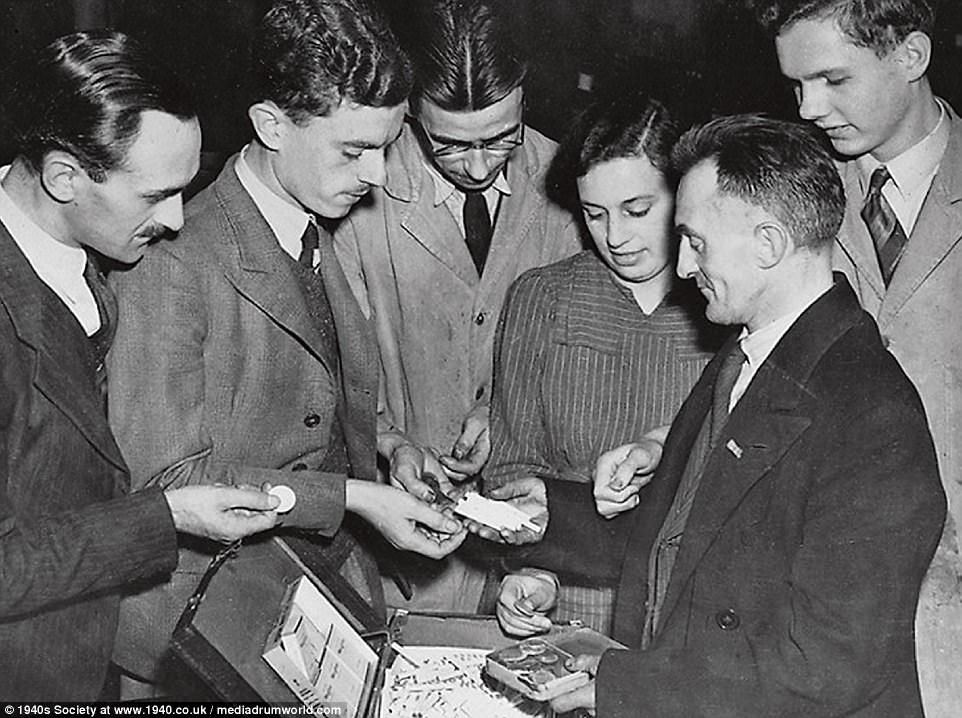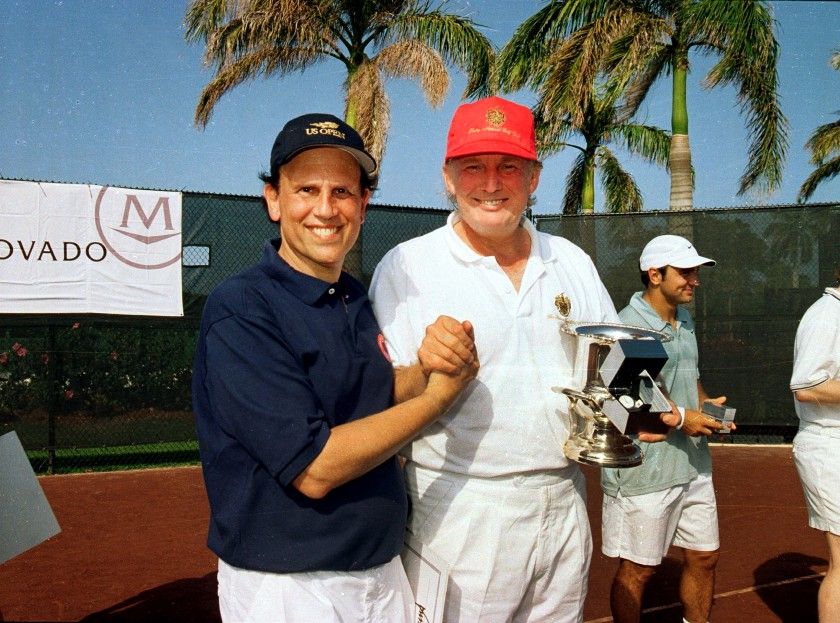
21st Century Spiv

The English have a great slang term which emerged out of World War II: spiv. In the wartime era of rationing, many basic consumer goods were hard to come by, a scarcity made worse by the relentless targeting of commercial shipping by Hitler’s U-Boats. As the tonnage aces sank freighter after freighter, and the Luftwaffe destroyed factories from the sky, the scarcity of household necessities grew worse and worse. Enter the spiv.
The spiv was a black-marketeer, supplying the public with those heavily rationed goods: fruit, meat, nylon, soap, eggs, razor blades. No stamping a ration book when the spiv came around; he’d sell you what you needed out of the back of a van. He was a dodgy character, and typically looked a bit seedy — stereotypically, a bounder in a flashy suit with a pencil moustache — but at the end of the day, he supplied a valuable service for his customers.
Smarter people than me say scarcity is the fundamental problem that all systems of economic organization try to solve. The spiv certainly did his best. Operating at the expense of the greater good, at the expense of a wider society playing by the rules and often suffering in penury, the spiv did make life more livable for his customers. At a time when British couples would celebrate their weddings with cakes made of plaster and cardboard, it’s perhaps not surprising that there would be widespread tolerance for such underground trade.

So what happens when spivs dominate the entire economy? And not in back-alley deals, either - dominating the legal economy, selling their wares in broad daylight, with no possible legal recriminations?
I thought of that conundrum this weekend, watching Michael Winterbottom’s newest movie, Greed. The movie stars Steve Coogan, the greatest of British comedians, as Sir Richard “Greedy” McCreadie, billionaire fashion mogul, as he prepares an opulent birthday party for himself on the Greek island of Mykonos. Coogan, being a brilliant comic actor, is also thus a brilliant dramatic actor (the opposite formulation is not similarly always true), and carries the sometimes-wobbly movie.
It is not a perfect film - the British critic Mark Kermode seemed to get it right to me, that some of the plot strands are not threaded together neatly - but Coogan, the vile, beating heart of the film, is superb. Coogan’s McCreadie is a spiv out of time, born into scheming not during the wartime consumer shortages, but during the go-go era of Thatcherite greed, becoming a billionaire selling inexpensive off-the-rack fashion from his empire of retail chains.
McCreadie, with his permatan, pearly capped teeth, and trophy girlfriend, is the 21st century’s spiv, expanding his trade across continents. Scarcity might not seem to be an issue anymore, seeing how much stuff McCreadie is able to sell to Britons. Unlike those wartime black marketeers, there seems to be no limit to how much clothing he can produce, mass-marketing the stuff while beating his competitors’ prices. What McCreadie shares with the spiv is that he gives the people what they want — by cheating.
As McCreadie’s official biographer (David Mitchell) explores the makings of the oligarch, the cost of doing business becomes apparent: McCreadie had gained his fortune not through any particular genius, or unique gift for commerce, but from a life of legalized crime and savage exploitation. Just as a camp of Syrian refugees on the beach spoils McCreadie’s view and infuriates him, so does he wish the dark side of his wealth could be totally concealed.
There is no such thing as a free lunch, and for McCreadie’s empire to function, an army of Sri Lankan sweatshop workers, eighty percent of them women, must live in hellish conditions, paid a few dollars a day to produce clothes. McCreadie has negotiated the factories down to rock-bottom prices — leaving the workers with crumbs, McCreadie with a fat profit, and British shoppers with easy access to consumer goods.

Having made his money off British consumers, using Sri Lankan wage slaves, McCreadie parks his money with Monacan bankers, thereby evading UK taxes and paying nothing. If only this was a screenwriter’s invention. As exposed by bank whistleblower Hervé Falciani, the Swiss financial system exists to facilitate precisely this evasion, allowing the wealthy — from Formula One racers to Mafia dons to African dictators — to park their money overseas. Popular among the real-life counterparts of McCreadie is attaining “non-dom” status in tax havens like Monaco, thereby avoiding paying their fair share in the countries that made them rich.
These are, perhaps, not particularly novel observations about the way capitalism works today, but one notably absent from mainstream movies. Until recently. The success of Parasite may have taught risk-averse studios and distributors that there can be a buck in producing films with good politics. Despite the movie’s occasional clumsiness, for its caustic criticism of the 1%, embodied in Coogan’s memorable portrayal of one of its most watchable barons, I hope Greed finds an audience.
I wrote last week about the genius of the TV show Better Call Saul. In many respects, Steve Coogan’s abusive billionaire and Bob Odenkirk’s sleazy lawyer are remarkably similar characters. Capable of endless reinvention, aggressive assaults, and appalling selfishness, both characters also suffer a private, suppressed shame, stuffed down deep inside themselves. Rather than ever allow that shame to surface, they offload the feelings onto others - yelling, cajoling, manipulating their lessers, using their powers to bully and destroy.
In McCreadie’s case, his origins are as a social-climbing conman of Irish extraction — his father dead, his mother indulgent and enabling — kicked out of the high-class boarding school of which he was an unlikely pupil. With a chip on his shoulder, McCreadie sets out to rip off the world, continually delaying any reckoning with the vacuity inside himself with the next deal, the next feat, the next scam.
Who else does this remind you of? I thought of this account, detailing one conversation between Donald Trump and biographer Michael D’Antonio:
“During his final interview with Mr. D’Antonio, as their relationship had warmed and deepened, Mr. Trump turned philosophical. He recalled a favorite song, performed by Peggy Lee, “Is That All There Is?” — a poignant ballad about unfulfilled dreams and dissatisfaction with life.
MR. TRUMP: It’s a great song because I’ve had these tremendous successes and then I’m off to the next one. Because, it’s like, “Oh, is that all there is?” That’s a great song actually, that’s a very interesting song, especially sung by her, because she had such a troubled life.
But he quickly retreats from the moment, declining Mr. D’Antonio’s invitation to further explain how the song makes him feel about himself, saying he might not like what he discovers.”
Rather than confront this inner pain, our oligarchs are content to act out their neuroses upon the global economy, flitting from scam to scam. And they are scams, padding McCreadie’s pockets, going beyond merely exploiting the global south. As his biographer discovers, McCreadie is, more than a fashion mogul, an asset stripper — raiding rival companies, armed with massive loans from friendly bankers, then extracting the wealth and jettisoning the remnants. Trump’s recent pardon of remorseless white-collar criminal Michael Milken — who, in the 1980s, provided exactly this kind of financial weaponry to ruthless corporate raiders — undoes even the token kind of punishment meted out toward filth like Milken.

Like Trump, and despite maintaining a certain oily charisma, McCreadie is no fun to be around as he storms the business world. There is a great scene in which a furious McCreadie upbraids an employee, in front of other executives of his retail empire, about a lackluster window display. Chuckling at one of the insults McCreadie lobs at him, the employee is cut off by the boss: “Don’t laugh Neil, this is not banter — this is me bollocking you.” As the scene continues, with the invective hurled growing hotter and hotter, it degrades from a darkly funny sequence to one that is merely dark.
The personal malevolence of the 1% is in fact inextricable from their corrupt practices. Even when they don’t throw off such an obviously vulgar vibe — Warren Buffett’s Omaha pony show comes to mind — the essence of their business is the gleeful destruction of vast swathes of other human beings. Just ask the residents of Buffett’s mobile home parks.
I am not terrified by the prospect that Michael Bloomberg is lying when he says, as he did in a recent debate, that he earned his billions and “worked very hard for it.” What frightens me is that this violent, racist authoritarian believes his own statement. And that we will all have to keep footing the bill for the spivs in charge.
